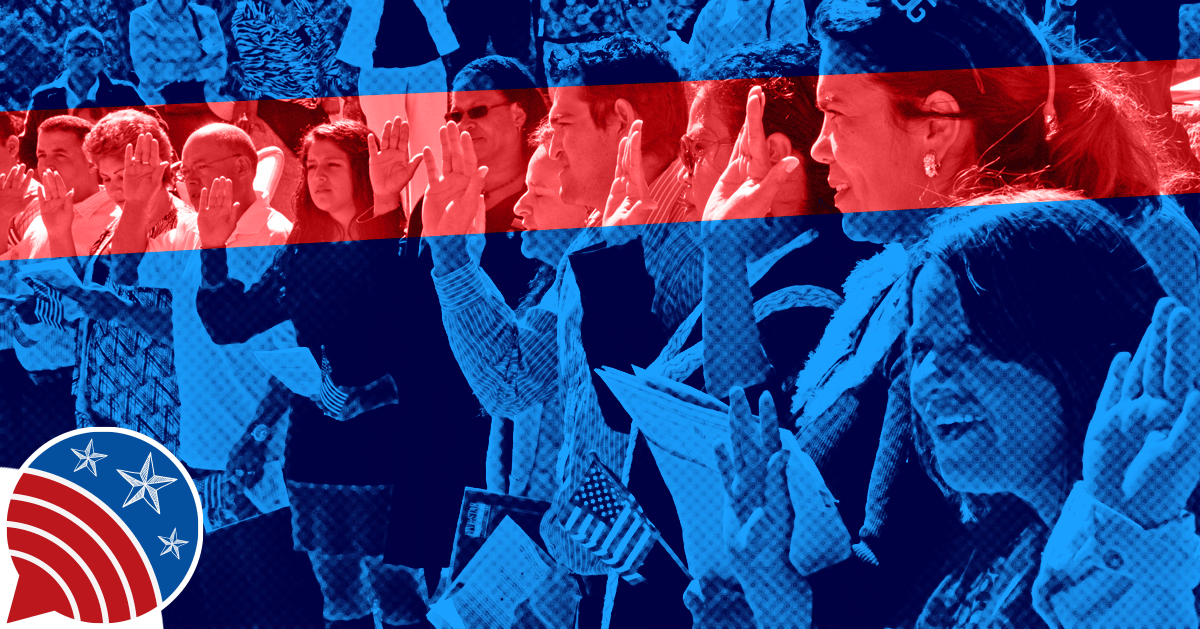
Citizenship
Podcasts & Videos
Citizenship Before the Civil War: Citizenship, Part 2
- Watch and listen to the 60-Second Civics video below. If you'd like, you can also read along using the script that appears below the quiz. Or you can turn on the video's subtitles and read while watching the video.
- Take the Daily Civics Quiz. If you get the question wrong, watch the video again or read the script and try again.
Professor Henry L. Chambers Jr: Good to see you.
Dr. Donna Phillips: You too. Professor Chambers, what was citizenship in America before the Civil War?
Professor Henry L. Chambers Jr: Sure. So before the Civil War, we still had the messiness of a lack of certainty regarding what citizenship was. We knew that all the states joined together and state citizens became American citizens. But who was in that? That group was unclear. So there are two big pieces that we could think about. One is the Dred Scott decision, which talked about the role of of slavery in citizenship, or I should say, whether slaves could be citizens, as well as the question of whether free Black folks could be citizens.
Chief Justice Taney came to the conclusion that neither blacks nor neither free Blacks nor slaves could be citizens of the United States. Very controversial. That was his take. But in the wake of that, in 1862, you had Attorney General Bates who had to make a call about the citizenship of the black commander of a ship, and he came to the conclusion that, in fact, Black folks could be citizens, citizens of the United States.
So what we had right before the Civil War was a true lack of understanding or a lack of certainty regarding who could be citizens and who could not be citizens. That was resolved in the wake of the Civil War, but it was truly messy before the Civil War was was complete.
Dr. Donna Phillips: Thank you so much for joining us today, Professor Chambers. That is all for today's podcast. 60-Second Civics, where civic education only takes a minute.






